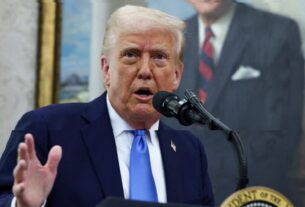GENEVA – In a tense diplomatic standoff that may shape the future of nuclear negotiations, Iran has strongly criticised European powers for what it calls a politically motivated move to reimpose international sanctions. Speaking from Geneva on Friday, Iranian Deputy Foreign Minister Saeed Khatibzadeh addressed reporters, expressing deep frustration at what Tehran sees as a misuse of the 2015 nuclear deal framework, known as the Joint Comprehensive Plan of Action (JCPOA).
“What Europeans are doing is politically biased and politically motivated,” Khatibzadeh said. “They are wrong on different levels by trying to misuse the mechanism embedded in the JCPOA.”
This comes after France’s President Emmanuel Macron signaled that European nations – specifically Britain, France, and Germany, collectively known as the E3 – are prepared to reimpose sanctions by the end of the month. The decision follows what they describe as a failure by Iran to engage seriously in recent talks aimed at resolving nuclear access issues and curbing uranium enrichment.
The E3 had launched a 30-day countdown in late August, invoking the JCPOA’s “snapback” mechanism to bring back U.N. sanctions unless Iran complied with specific conditions. These include allowing U.N. nuclear inspectors full access to their facilities and accounting for their enriched uranium stockpiles. In exchange, the European powers offered to postpone sanctions for up to six months to allow for meaningful diplomatic engagement.
Iran, however, remains firm in its position. Foreign Minister Abbas Araqchi mentioned on Thursday that Tehran had already presented a “reasonable and actionable plan,” but the response from the West has so far been dismissive.
Khatibzadeh warned that Iran is weighing all its options. “If Europeans go on this path, they are making the level of unpredictability to the highest level possible,” he said. “And they are responsible for any possible future risks.”
Meanwhile, the U.N. Security Council is expected to vote on a resolution that would permanently lift U.N. sanctions on Iran. However, diplomats believe it is unlikely to pass, lacking the minimum nine votes needed. Even if it does, it faces a near-certain veto from the U.S., Britain, or France.




